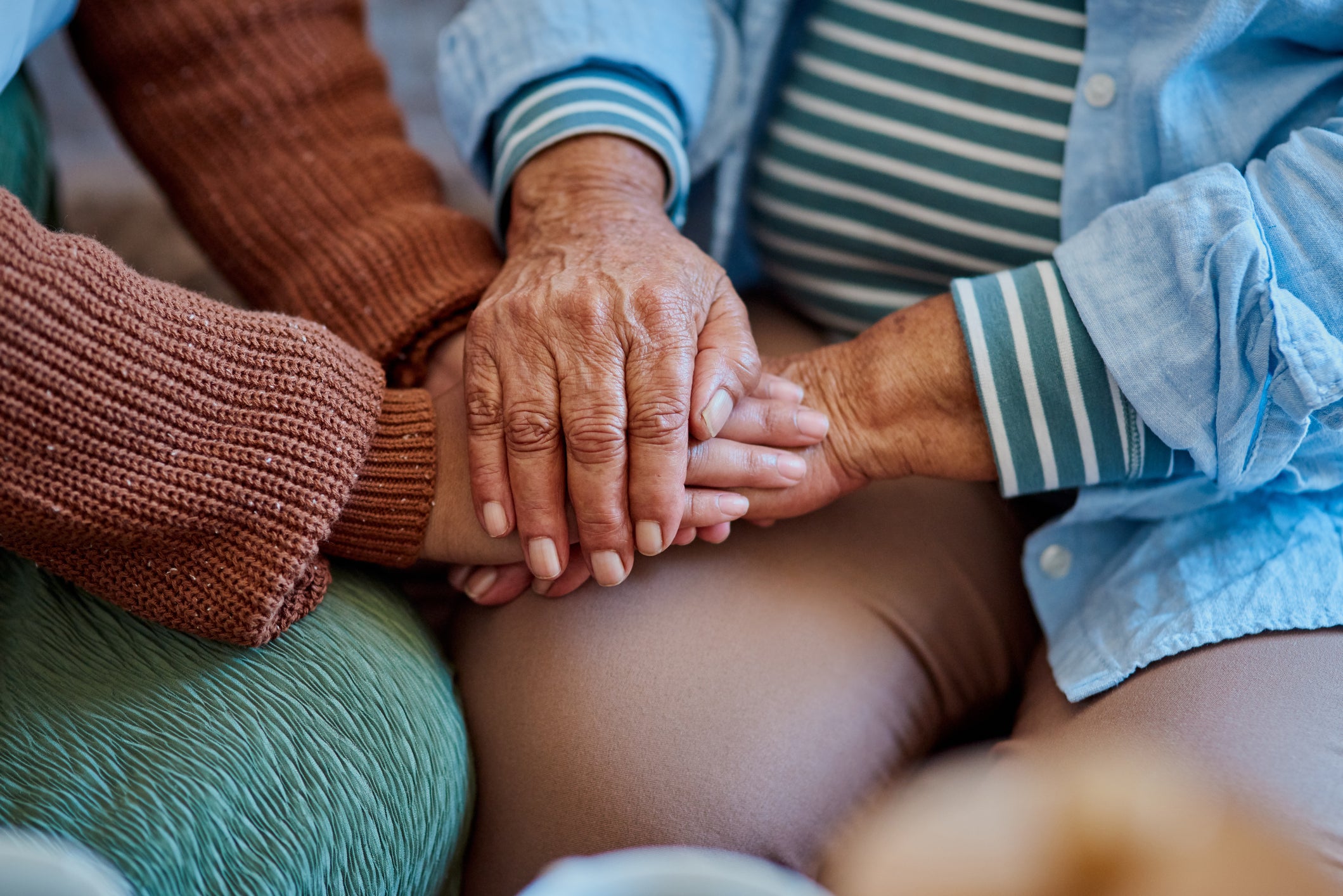My Italian grandmother and I have a deep affinity, but we don’t speak the same language
A familial connection isn’t all about words. Sometimes, it’s a soft smile; it’s eye contact; it’s offering a cup of coffee or baking a cake


Your support helps us to tell the story
From reproductive rights to climate change to Big Tech, The Independent is on the ground when the story is developing. Whether it's investigating the financials of Elon Musk's pro-Trump PAC or producing our latest documentary, 'The A Word', which shines a light on the American women fighting for reproductive rights, we know how important it is to parse out the facts from the messaging.
At such a critical moment in US history, we need reporters on the ground. Your donation allows us to keep sending journalists to speak to both sides of the story.
The Independent is trusted by Americans across the entire political spectrum. And unlike many other quality news outlets, we choose not to lock Americans out of our reporting and analysis with paywalls. We believe quality journalism should be available to everyone, paid for by those who can afford it.
Your support makes all the difference.Italy has always felt like home to me. My stepmum is from the Emilia-Romagna region in the north, and I’ve been visiting most summers since my parents divorced when I was six months old. I’ve accumulated two extra sides of the family, and it’s a gift.
Stepping into my grandmother’s rustic Italian kitchen during a visit in December, I was flooded with nostalgia. Since she was diagnosed with Parkinson’s disease three years ago, it has remained largely stagnant and yet, it still smells the same as it always did.
Sitting around the table whilst my grandmother cooked for me as a child, she shared her culture. However, one thing we’ve never shared is language. My nonna and I have a deep emotional bond, like many grandparents and their respective grandchildren do. She comes from a generation of Italians that were not taught English at school. For girls born in the 1930s, it was the norm to be formally educated for a short period before being transferred to the home to prioritise their “feminine” duties.
My grandmother left school at 11 and was taught how to cook, clean, and be a good housewife for her future husband. Her intellectual development was not a priority.
In the 1980s, after she married my nonno and her children were grown, she went back to high school to gain her diploma. Briefly studying English, she gained the higher level of education she had been denied as a young girl. Her certificates sit proudly in my grandfather’s office. Now in her 80s, these basic English words have dissipated.
My stepmum’s situation is very different. Studying English at university, she was fluent before she even visited the UK. She met my dad in the 1990s, and everything changed: she became the connection between two families, lovingly translating our words without ever expressing an ounce of irritation.
At school, I learnt French and German. I was desperate to learn Italian, practising with my stepmum every chance I could, but it never stuck.
Now, I’m 24, and I find myself ashamed that I cannot speak the language with which I have such a strong connection. I can string together basic sentences and navigate my way around a restaurant menu, but I can’t ask my grandmother how she’s feeling in detail.
Surrounded by my Italian relatives, I’ve often felt a sense of cultural diaspora, almost an anxiety, about my lack of language skills. My knowledge of Latin languages only carries me so far: I can dissect conversations and interpret the details, but I cannot respond. It feels as though I have the words in my mouth, but someone is forcing my tongue down.
I’m not alone. Julie is from Scotland and lives in Germany with her Italian husband. Their six-year-old son is trilingual, speaking English, German and Italian, but whilst Julie is quickly familiarising herself with German, her Italian is limited.
This makes communicating with her mother-in-law in particular difficult. “I feel that if I spoke Italian, I would have a much closer relationship with her. I don’t feel that I can express my true personality or fully join in conversations,” she says.
Despite this communication barrier, Julie has developed alternative methods of communication, curating messages on WhatsApp using Google Translate. “I find thoughtful presents for her that I know she likes. Body language also goes a long way – smiling, nodding and hugs, and when I visit, I indulge in acts of kindness, so I clean and tidy, cook for her and walk her dog.”
Similarly, Marcus has family in Switzerland but was never taught Swiss German. At school, he learned High German so that he could communicate with his grandfather, who spoke both forms. Since his death, he has had to innovate new ways of communicating with his aunt.
To keep up to speed with all the latest opinions and comment sign up to our free weekly Voices Dispatches newsletter by clicking here
“She only speaks Swiss dialect, which I can understand but do not speak,” he says. “I speak to her on the telephone in High German and she responds in Swiss German. Recently, she got herself a phone and sends memes and videos via WhatsApp.”
Clearly, a familial connection isn’t all about words. Sometimes, it’s a soft smile; it’s eye contact; it’s offering a cup of coffee or baking a cake. My grandmother has shown her adoration towards me for years, and though we’re not related by blood, I know that her love for me is unconditional. Over the years, we’ve exchanged smiles, hugs and laughter, and each birthday, I count on the fact that she’ll make sure I have a present to open.
As I returned to her kitchen in December, her eyes lit up, and I knew instantly that though the years had passed and her memory is beginning to fade, one thing remains true: I will always be her English granddaughter, irrespective of any language barrier. And I think that’s beautiful.
Join our commenting forum
Join thought-provoking conversations, follow other Independent readers and see their replies
Comments